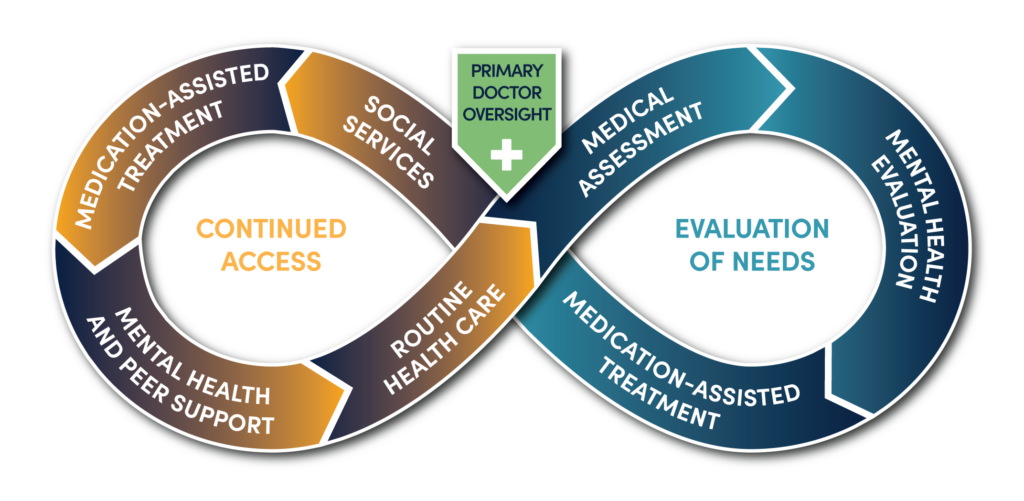The CORE Network is an initiative designed to establish a coordinated system of care for those seeking treatment for opioid use disorder. Patients seeking treatment for other substance use disorders can also benefit from CORE.
This guide outlines the initial implementation of the CORE Network in the state of Florida and serves as a guidebook for others to replicate.

Opioid Use Disorder (OUD) affects thousands of Americans annually. In 2021, over 6,400 persons died from an opioid overdose in Florida and in 2022, Florida emergency medical services responded to over 40,000 suspected opioid-involved overdoses. Deaths from opioid use continue to rise each year.
Those who seek treatment and recovery from OUD have traditionally found themselves attempting to navigate siloed and fragmented social, medical, and behavioral health services in their communities. This fragmented approach has resulted in poor outcomes, recidivism, overdoses, and even death among those with the fewest resources and capability to know where to go to get the help they need.
The three main prongs of CORE are:
- First responders.
- Hospital emergency departments with skilled practitioners in addiction medicine.
- Treatment facilities that can assist the patient with long-term medication assisted treatment, primary care, and other psychosocial needs.
These entities work together in the community to create a seamless system of care, utilizing a warm hand-off approach from each entity by non-judgmental peer navigators. Patient’s care and treatment plans are always supervised by a physician.
The Florida Department of Children and Families contracts for behavioral health services through regional systems of care called managing entities (MEs).
These experts stand ready to provide resources in your area available for Substance Use Disorder.
This plan aims to provide non-CORE counties and communities with the tools to utilize existing treatment structures that can parallel CORE’s treatment model, simultaneously while the statewide program is being implemented.
If someone in a non-CORE county wants to seek help through a similar treatment model or work with community partners to establish a treatment program utilizing the steps outlined in the CORE Network Guide.
CORE Network Guide – This guide outlines all of the steps for implementing CORE and the results and lessons learned from the pilot launch in the state of Florida.
Additional Resources
General CORE Resources
Partner Resources
- First Responders: Lifesaving Care, EMS, and Fire Rescue
- Hospital Emergency Departments: Specialized Stabilization Providing Addiction Specialty Services
- Treatment Facilities: Protocol for Group-Based Addiction Treatment
- Treatment Facilities: Providing Medication Assisted Treatment